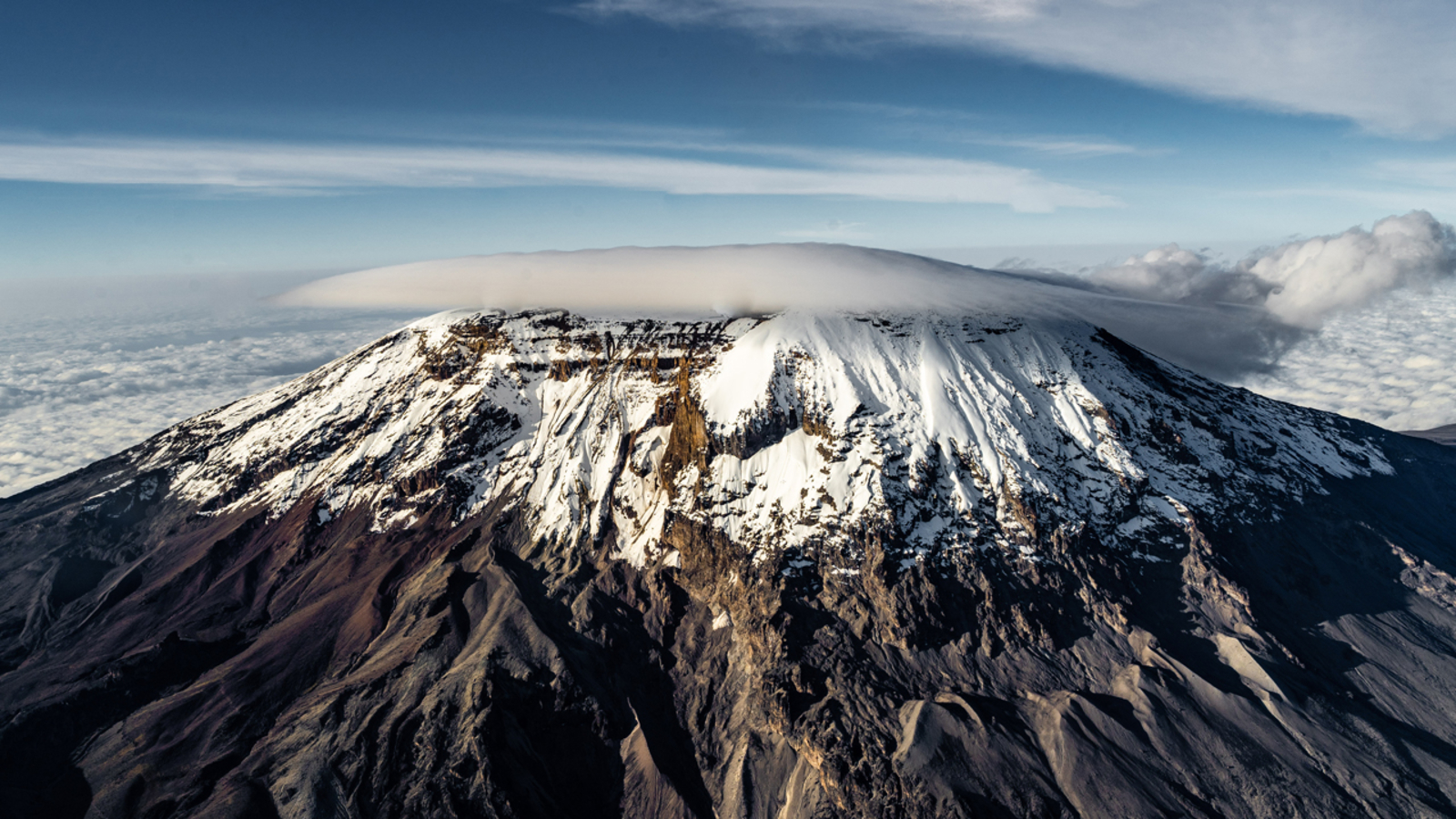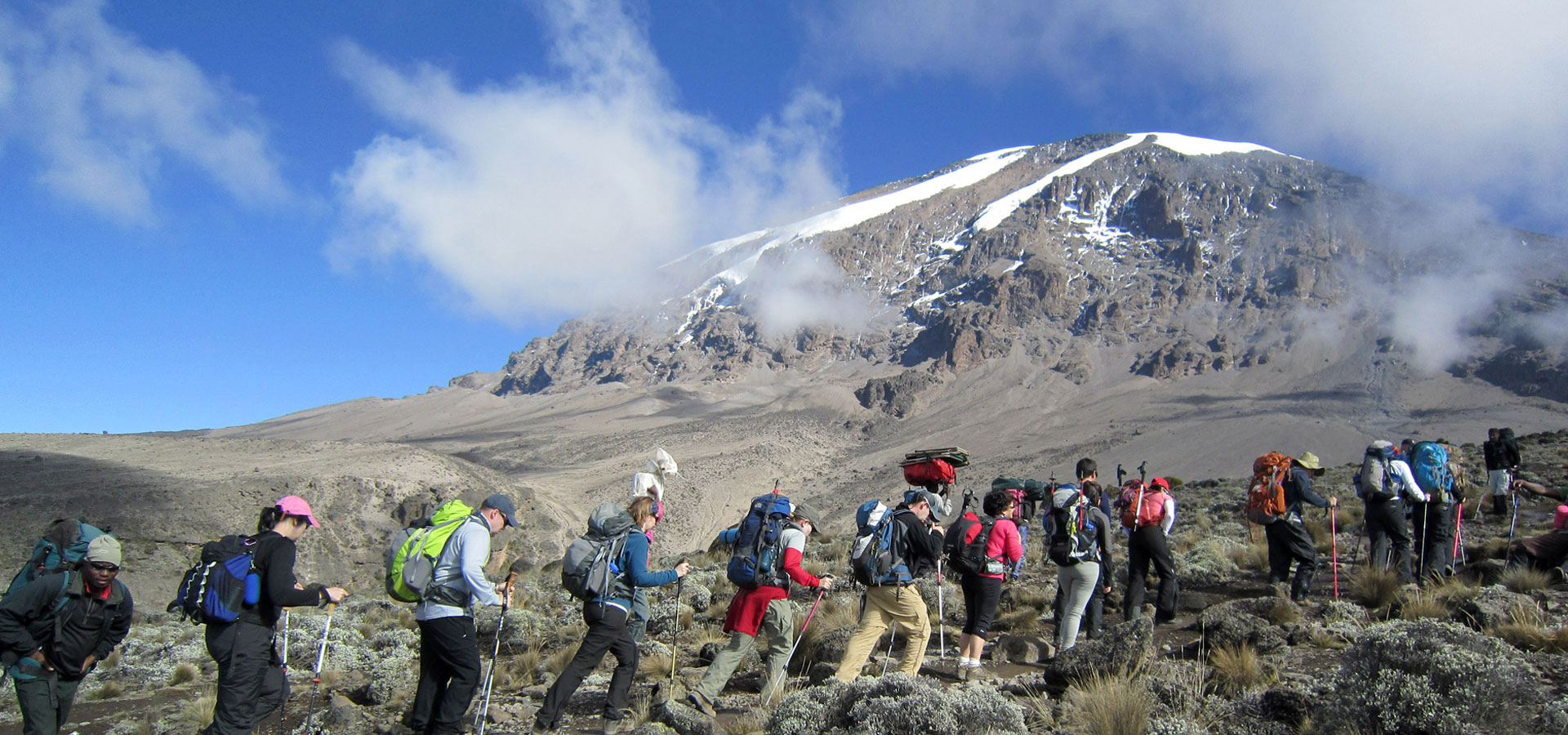Towering over the savannas of Tanzania, Mount Kilimanjaro reigns supreme as the tallest mountain in Africa and the world’s highest free-standing mountain.

Tallest Mountain In Africa
Kilimanjaro, a dormant volcano, last erupted about 360,000 years ago.
It has three volcanic cones: Kibo, Mawenzi, and Shira. Among them, Kibo is the tallest and the summit, while Mawenzi and Shira are extinct.
People worldwide flock to Kilimanjaro for trekking. The journey to the summit lasts five to ten days, offering a challenging yet rewarding experience.
Unveiling Kilimanjaro’s Origins: A Geological Wonder
Kilimanjaro’s towering presence speaks volumes about its tumultuous history.
Millions of years ago, tectonic plates in motion gave rise to this dormant volcano, boasting three distinct volcanic cones: Kibo, Mawenzi, and Shira. Among them, Kibo, the youngest and tallest cone, cradles the coveted Uhuru Peak, attracting climbers in the thousands each year.
Exploring Kilimanjaro’s Ecological Diversity
Climbing Kilimanjaro means journeying through five climatic zones, each bursting with unique plants and animals.
Starting from the vibrant rainforest at the mountain’s base, where monkeys swing through green branches and colorful birds dart through the canopy, you move to the misty heath belt, a zone adorned with lively wildflowers and giant heather trees.
The journey culminates in the Arctic zone, a surreal moonscape crowned by the gleaming glaciers of Uhuru Peak.
In this harsh yet awe-inspiring environment, a few specialized insects and the occasional bold bird attest to life’s resilient spirit.
Tallest Mountain In Africa: A Cultural Tapestry
Local communities residing near Kilimanjaro have long revered the towering mountain.
The Chagga people, who have lived in the region for centuries, view the mountain as a sacred link between the earthly and spiritual realms.
Traditional stories and rituals intertwine Kilimanjaro with their cultural identity, stressing the importance of respecting nature and acknowledging the mountain’s powerful presence.
For many African cultures, Kilimanjaro bears symbolic significance. Its imposing stature symbolizes strength, resilience, and the pursuit of lofty goals.
Serving as a beacon of hope, it is a constant reminder of the intricate connection between humanity and the natural world.
Conquering the Challenge of Mountain: A Climber’s Triumph

Climbing Kilimanjaro puts both physical and mental strength to the test.
The varied terrain, thin air, and unpredictable weather call for careful planning, preparation, and a good deal of determination. Yet, for those who reach the summit, the rewards are beyond measure.
The breathtaking panoramic views from Uhuru Peak unfold like a golden tapestry, with sprawling savannas, wildlife, and distant mountains.
The sense of accomplishment, the feeling of surpassing personal limits, and the profound connection with nature etch an enduring mark on every climber’s soul.
Ensuring Kilimanjaro’s Future: Preserving the Majesty
The rise in Kilimanjaro tourism offers opportunities and challenges.
While it benefits local economies, concerns about environmental harm and the need for sustainable practices arise.
Crucial steps involve responsible tourism, conservation initiatives, and engaging local communities to safeguard Kilimanjaro’s beauty and ecological balance for future generations.
In summary:
Mount Kilimanjaro is more than a physical landmark; it symbolizes Africa’s natural splendor, cultural heritage, and human spirit.
Whether you’re a bold climber, a nature enthusiast, or someone captivated by the world’s wonders, Kilimanjaro invites exploration to appreciate the delicate balance between nature and human ambition.
Understanding its geological origins, ecological diversity, and cultural significance ensures that the “Crown of Africa” continues to inspire for centuries.
